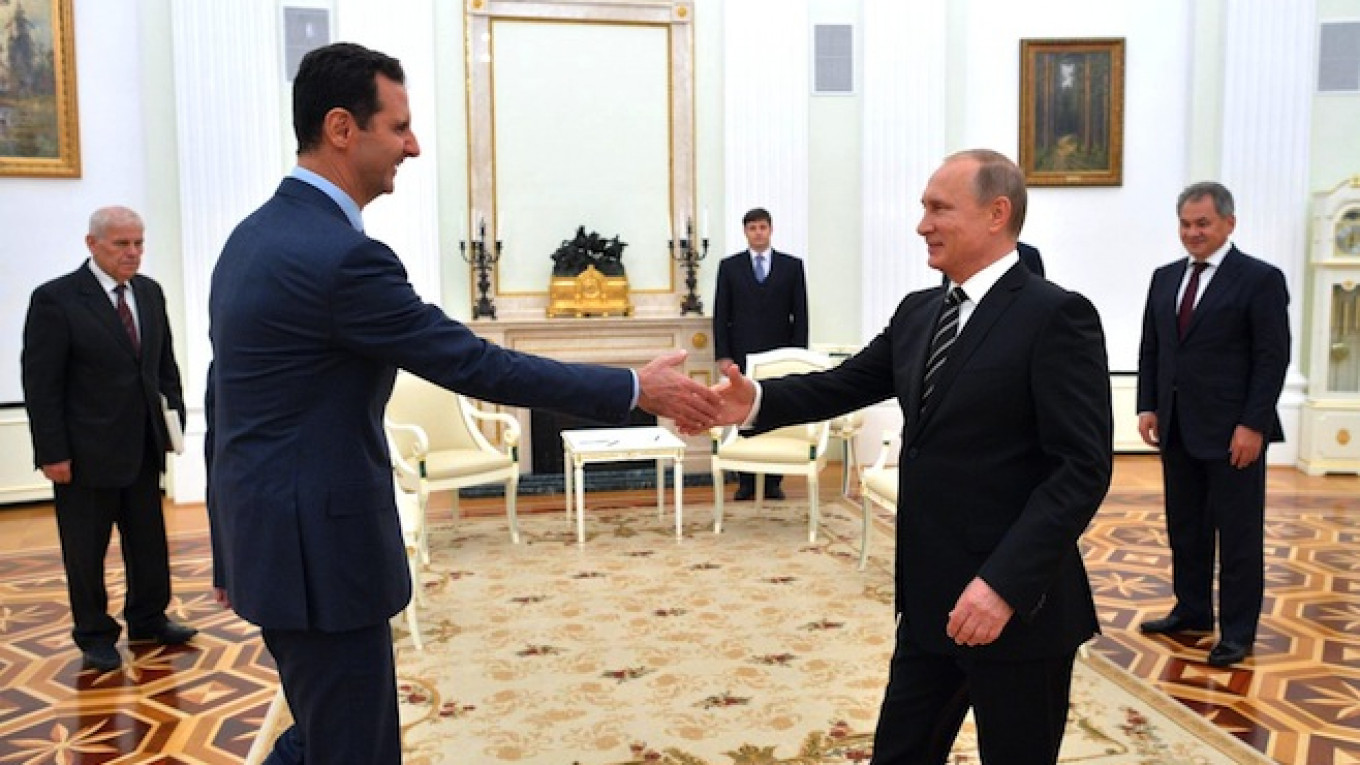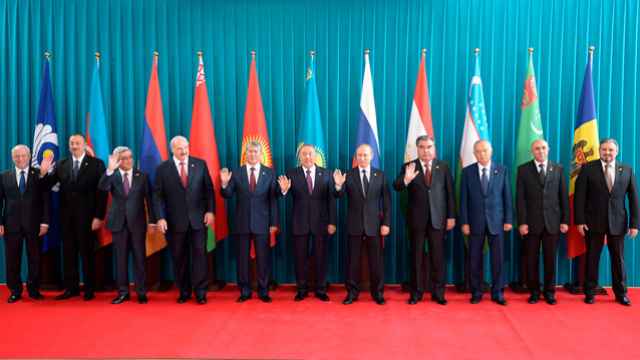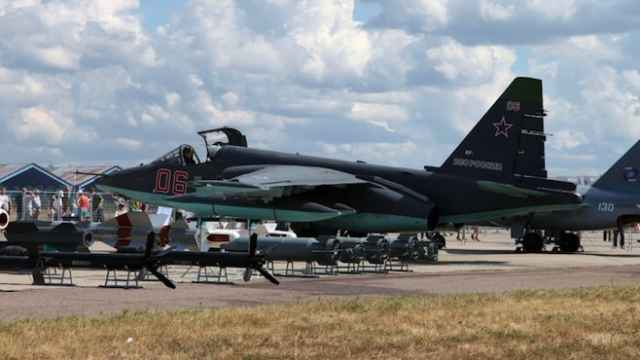Modern wars tend to start well, with deceptive techno-thriller ease. The pre-planned air strikes, mapped in cockpit camera video; the cruise missiles slashing trails of smoke and fire through a blue sky. They quickly tend to degenerate in messy, unpredictable ways that favor the desperate, the unpredictable, the insurgent and the unseen. With the Kremlin’s new adventure in Syria, it is likely soon to find itself losing the initiative and faced with a series of dangerous and unpalatable options.
Precisely in order to try and ensure that it fights the war against the Islamic State and the other rebels on its own terms, Russia is confiningf itself (so far) to the deployment of airpower and long-range missiles. It is Syrian troops, the pro-regime militias and Hezbollah fighters who are actually taking the war to the enemy on the ground.
If only life — and war — were as straightforward and easy to control. First of all, there will be accidents and blunders and plain unexpected reversals. A plane will tumble from the sky when an errant bird gets sucked into its engine, broadcast on the Internet to a triumphalist rebel soundtrack. Or a Syrian commander will defect, or an army unit find itself hammered by Russian bombs because of poor targeting data. And anyway, the government offensive already seems bogged down.
More to the point, this is the age of asymmetric war, of looking for unexpected ways to play to your strengths and not the enemy’s.
Russia sent a battalion of naval infantry marines to Syria so as not to have to rely on local troops for their security. Nonetheless, as the Americans have discovered to their cost, it is impossible to guarantee security against enemies who are determined, imaginative and willing to die for their cause. Already one soldier has died in still-unclear circumstances, and the Russian Embassy in Damascus has been attacked. This is just the start and rebels will find some new ways — perhaps a suicide attack on supply ships unloading munitions at Latakia? — to retaliate on their terms.
So what will Moscow do when its shiny arm’s-length war suddenly gets dirty? And when it realizes that rebels who have fought for years against a regime with control of the skies and an evident willingness to rain explosives indiscriminately down from them are unlikely to be beaten just because Russia sends 30 new planes?
Maybe Moscow simply keeps its nerve, accepts that in war there will be losses and mishaps, and sticks to its strategy. Ironically, this is often the hardest thing for any government to do: We seem conditioned to assume that any action demands a reaction. Besides, it is highly unlikely that the Russian deployment will in the longer term reverse the seemingly inexorable retreat of Syrian President Bashar Assad’s forces. After a certain point, holding the line may simply no longer be an option.
So will Putin instead opt to cut his losses when things start to get difficult? It may be the most sensible option, but also the most politically difficult. Given that in part at least the Syrian adventure is being hyped at home to distract from the stalemate (and possible gradual withdraw) from the Donbass, how many wars can Putin seem to lose?
Sadly, the most likely outcome is the familiar one, witnessed time and again when over-confident powers find themselves embroiled in wars that stubbornly refuse to go the way they planned: “one more push.” Think of the World War I generals throwing their soldiers into the no-man’s-land meatgrinder, convinced that this time an assault exactly like all the previous ones would break the enemy line. Or the Soviet escalation in the early years of the Afghan war, certain deploying a few more regiments and devastating a few more villages would cow the rebels.
Foolishness, but a familiar one, born of a mix of overconfidence and insecurity, a certainty that victory is just over the horizon and a fear of the consequences of defeat. For a Kremlin painfully desperate to show both its own people and the outside world that Russia is a great power not to be challenged, it is hard to see how it will avoid this vicious circle of escalation.
Mark Galeotti is professor of global affairs at New York University.
A Message from The Moscow Times:
Dear readers,
We are facing unprecedented challenges. Russia's Prosecutor General's Office has designated The Moscow Times as an "undesirable" organization, criminalizing our work and putting our staff at risk of prosecution. This follows our earlier unjust labeling as a "foreign agent."
These actions are direct attempts to silence independent journalism in Russia. The authorities claim our work "discredits the decisions of the Russian leadership." We see things differently: we strive to provide accurate, unbiased reporting on Russia.
We, the journalists of The Moscow Times, refuse to be silenced. But to continue our work, we need your help.
Your support, no matter how small, makes a world of difference. If you can, please support us monthly starting from just $2. It's quick to set up, and every contribution makes a significant impact.
By supporting The Moscow Times, you're defending open, independent journalism in the face of repression. Thank you for standing with us.
Remind me later.








